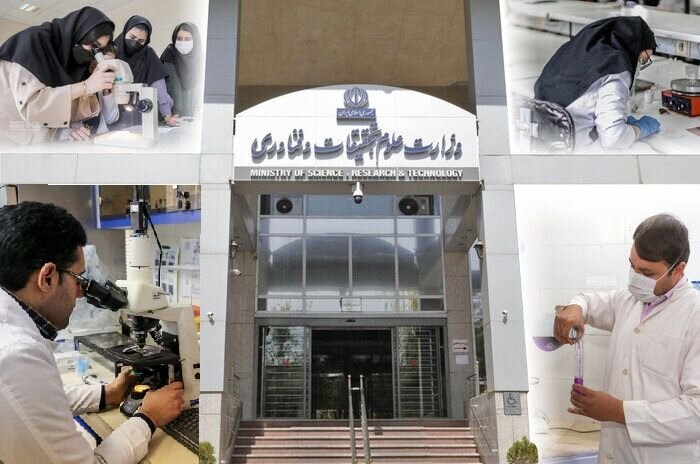Over 2,500 Iranians among world’s top 2% most-cited researchers

TEHRAN –Stanford University, using Scopus data provided by Elsevier, has listed 2,503 Iranian researchers among the top 2 percent of the most-cited scientists in the world, a significant growth compared to 1,870 researchers in 2023.
The selection is based on the top 100,000 scientists by c-score (with and without self-citations) or a percentile rank of 2 percent or above in the sub-field. This version (7) is based on the August 1, 2024, snapshot from Scopus, updated to the end of the citation year 2023.
The inclusion in the ‘Top 2%’ list is determined by several key metrics. C-score which is the composite score based on various bibliometric factors, including the total number of citations, h-index, and the number of citations with and without self-citations.
Field and Sub-field Percentiles: scientists are classified into 22 broad fields and 176 sub-fields. Only those who rank in the top 2% of their sub-field are included.
Career-Long vs. Single-Year Impact: the ranking is available for both career-long impact and single-year performance, offering insights into both long-term contributions and recent achievements.
Iran ranks 32nd in 2024 Research Leaders worldwide
The 2024 edition of the Nature Index Research Leaders report placed Iran 32nd among Research Leaders globally. The report is based on Nature Index data from January 1 to December 31, 2023.
Institute for Fundamental Sciences (IPM), University of Tehran, and Sharif University of Technology were ranked first to third in the country.
The country was ranked second in Physical Sciences, third in Chemistry, as well as Health Sciences, fourth in Earth and Environmental Sciences, and fifth in Biological Sciences in the region.
Iran’s best global ranking was in Physical Sciences with the rank of 27.
The Nature Index is an open database of author affiliations and institutional relationships. The Index tracks contributions to research articles published in high-quality natural science and health science journals, chosen based on reputation by an independent group of researchers.
The Nature Index provides absolute Count and fractional share counts of article publications at the institutional and national levels and, as such, is an indicator of global high-quality research output and collaboration.
Data in the Nature Index are updated regularly, with the most recent 12 months. The database is compiled by Nature Research Intelligence, part of Springer Nature.
Iran ranks 14th for most-cited institutes
The number of top Iranian universities and research institutes in the Essential Science Indicators (ESI) database has increased from 115 last year to 134 this year, ranking the country 14th worldwide, and second among Islamic countries, the Islamic World Science Citation Center (ISC) has reported.
Essential Science Indicators, or ESI, is a fundamental analysis and evaluation tool that reveals emerging science trends, as well as the performance of influential individuals, academic institutions, papers, journals, countries, and regions in various fields of scientific research.
A total of 9,019 universities and research institutes in all subject areas are ranked by the ESI database in a ten-year period, from 2014 to 2024.
Iran's top universities and research institutes are present in 19 subject areas, and the largest number is in the clinical medicine subject area with 74 universities and research institutes.
The number of institutions in the subject areas of engineering was 67, chemistry 57, agricultural sciences 29, materials sciences 28, pharmacology and toxicology 27, social sciences, general sciences 21.
Also, the number of institutions in the fields of plant and animal sciences, and environment/ecology 20 each, neuroscience and behavior 18, biology and biochemistry 17, computer science 15, immunology 10, geology 8, molecular biology and genetics and physics 5 each, microbiology and psychiatry and psychology 3 each and mathematics one.
The ranking includes 35 Islamic countries. Turkey ranks first among Islamic nations, followed by Iran in second place.
Also, Turkey with 149 universities and research institutes ranks 12th in the world.
Egypt (with 48 universities and research institutes) ranks 25th, Pakistan (with 46 universities) ranks 27th, and Saudi Arabia (with 45 universities) ranks 38th, respectively.
MT/MG
Leave a Comment